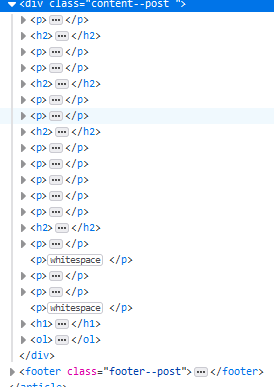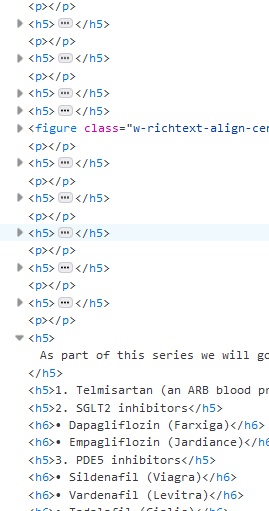Elros
#96
I love this list @meduara thank you! Great summary. I’m ApoE4/4 and doing many but not all of these things, am looking into them!
1 Like
“This article is a preprint. It may not have been peer reviewed.”
So, the choice is sarcopenia by protein restriction or
protein as recommended and getting Alzheimer’s. I’m glad I’m not a mouse!
5 Likes
medaura
#98
There’s more where that came from. If you’ve hit the low hanging fruit, feel free to ping me for more. I have a whole document with clippings from promising research.
2 Likes
Feel free to post the document here (pdf or jpg/png file), or send it by DM to me, I’ll make a PDF out of it and post it here.
3 Likes
medaura
#100
I’ll organize it a bit more and send it over.
3 Likes
For a little over a decade, scientists have been studying a subset of people they call “super-agers.” These individuals are age 80 and up, but they have the memory ability of a person 20 to 30 years younger.
A paper published Monday in the Journal of Neuroscience helps shed light on what’s so special about the brains of super-agers. The biggest takeaway, in combination with a companion study that came out last year on the same group of individuals, is that their brains have less atrophy than their peers’ do.
Experts don’t know how someone becomes a super-ager, though there were a few differences in health and lifestyle behaviors between the two groups in the Spanish study. Most notably, the super-agers had slightly better physical health, both in terms of blood pressure and glucose metabolism, and they performed better on a test of mobility. The super-agers didn’t report doing more exercise at their current age than the typical older adults, but they were more active in middle age. They also reported better mental health.
non-paywalled version: A Peek Inside the Brains of ‘Super-Agers’
3 Likes
The number of people with Alzheimer’s disease in their 40s or 50s could be underestimated
Published: April 24, 2024 at 11:33 a.m. ET
Could you develop this disease at such an early age? Your family history could be telling, medical professionals say
https://www.marketwatch.com/story/the-number-of-people-with-alzheimers-disease-in-their-40s-or-50s-could-be-underestimated-0aa98d7d
5 Likes
According to this, adopting the MIND diet can reduce chances of dementia between 35-50%
Also, keep your BP and LDL low as they also influence dementia.
4 Likes
I absolutely agree - and it just isn’t considered when someone with mild cognitive decline or subjective symptoms presents in their 40’s.
I guess this is one of the reasons to consider neurocognitive protection strategies from a young age - as once you have disease, it seems much more difficult to reverse - and possibly even to prevent progression.
I’m growing more willing to enact these strategies in individuals in their 40’s, and with homozygous ApoE4 in the mid 30’s than previous. The good news, is that we have some strategies beyond just getting educated, staying fit, have a good diet, keep your brain active … There is a significant evidence base that is growing on this.
I’m in the midst of trying to get a blog out weekly on what will be at least an 8-9 part series on neurocognitive decline prevention and pharmacotherapy to address this.
My proof reader and adviser (dragged into this reluctantly to help me on the evidence base) the ever wise @adssx who has been an amazing contact I’ve made through this forum.
12 Likes
Neo
#105


Amazing guys! So important.
4 Likes
A_User
#106
I feel we all have an every day measurement that predicts Alzheimer’s:
- How we behave
- What and how we think
- What we feel
If any of these start to decline, it might be predicting Alzheimer’s disease or other dementia, maybe not now but in the long term. Of course it’s not a substitute for pharmaceutical drugs (BP, blood sugar, lipids, etc) and lifestyle to prevent it, just a possible measurement. Meaning these three things or others which are all available to us or through the feedback of others, measure possible exponential declines (or increases) in cognitive function.
Ah - but these subjective measures are much more difficult to evaluate… and there are so many things that can influence them, other than movement towards alz.
3 Likes
Want to make sure to subscribe to this so I don’t miss it. Any way to? Also if you need help proofreading I can be of service. Got professional experience in editing even though it might not show from my touch and go comments here.
4 Likes
A_User
#109
I am pretty sure I can measure my own cognition and behavior just by thinking and feeling it, so for me it is not difficult. I can also measure this in others pretty easy - some just feel ‘asleep’ and others ‘awake’, for example - on a scale. I think the former have higher risk for Alzheimer’s. On average, those with those measurements drifting towards the negative might be symptoms of Alzh like those undiagnosed in their 40’s and 50’s, or cause the disease in of itself, given enough time. But I dunno.
1 Like
I’d love your help. This is an ongoing task as I continue to formulate and reformulate my approach and the evolving evidence for pre-empting neurocognitive decline.
I’ll contact you via message. My blog is on my website, and yes, I’ll make sure you not only get them, but help me. I appreciate all the citizen scientists on this board. There is too much out there to filter through.
I’m pretty comfortable with my approach, but it evolves and there are frequent tweaks that need to occur. It is the nature of working in this space.
My blog stuff is at Grant E. Fraser MD, Anti-Aging and Regenerative Medicine - Blog … I’ve just done the first one on Neurocognitive decline - titled “Don’t Lose Your Mind”.
The next one is the least controversial that will be on Telmisartan, then it’ll be PDE5’s, SGLT2’s, GLP/GIP, Rapamycin, then might even risk a couple on Methylene Blue and Nattokinase. Not sure on the last 2 yet.
8 Likes
A_User
#112
You should probably divide the text into different parts, with a heading for each, makes it easier to read and keep track of where we read in the text. See for example a Peter Attia blog post: Does the timing of sleep loss during the night impact subsequent negative metabolic effects?
He is also dividing things into paragraphs and H2’s:

While yours is a lot of H5 and H6’s:

I think it makes it harder to read.
Maybe @RapAdmin can give you some SEO tips.
Here’s a good resource based on source material of experimental studies:
3 Likes
I’m stuck with webflow, which has been a real challenge to format on. When I put them on facebook … much easier. I’ve been so frustrated with that platform and haven’t found resources on being able to get rid of excessive spaces and get the formatting appropriate. It isn’t for lack of trying.
Yes, nicely formatted when I author it. Any tips, specific with me being stuck with WebFlow as my instrument to publish I’d appreciate the help!
3 Likes
I used the less expensive pendulum akkermansia to lower my HbA1c from 5.6 to 5.0. FYI.
3 Likes
Interesting Article on Diet and AD
This is an interesting one on diet, DunedinPace and Dementia.
4 Likes